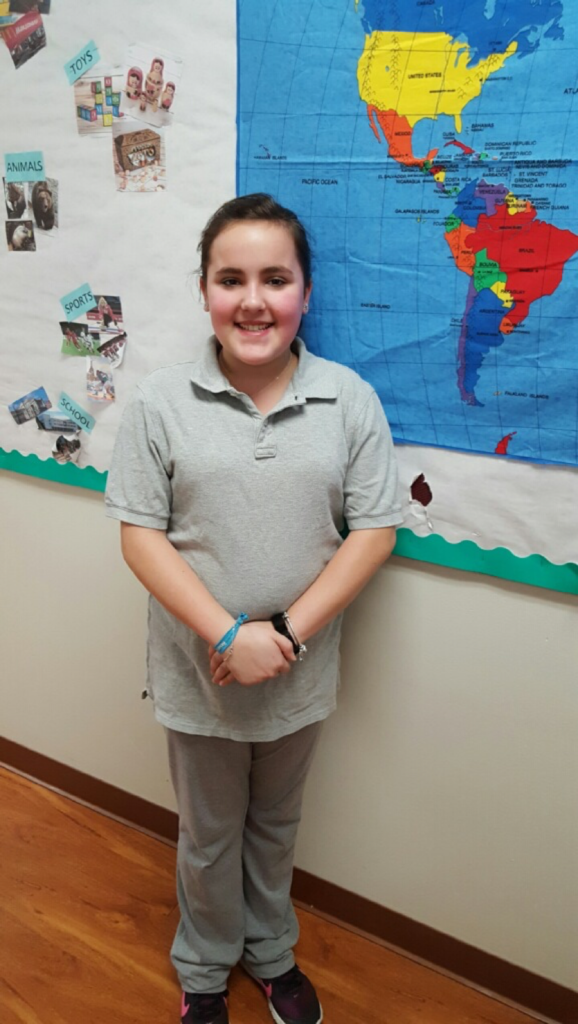Summit Is Better:
Equal Opportunity Learning

Equal opportunity is not just about making sure people from different backgrounds have the same chance to learn. In an educational setting, equal opportunity means that every learning style is treated equally and given the same opportunities for a superior education experience.
The staff at Summit Academy knows that no two students are alike, and therefore, no two students learn alike. That is why we focus on our students as individuals and let them shape their learning experience, not the other way around. While we push all of our students towards the same goal of academic success, we know that they will each take a different journey to get there, and we are there with them every step of the way.
When you chose Summit Academy for your child, you sent a clear message. You told us that you did not want your child to be treated as part of a crowd. You said that you did not want them to get left behind so that others could move forward. You told us that you wanted your child to be a part of something and to be given their chance to shine on the academic field. You made it clear that you didn’t just want a high school diploma for them, but a college degree.
For the 2015-16 school year, Summit Academy had one of Michigan’s top 50 highest graduation rates with a nearly 99% graduation rate. We heard your message loud and clear, and we have no doubt that 100% is just on the horizon.
No matter how your child learns, or what their needs are, every Summit Academy student has the opportunity to be a part of that success.
Preparing for a Test without Anxiety

Test preparation can be an area of struggle for many of our students. As a parent, you may even find yourself a bit flustered when your child has a “big” test for which they need to prepare.
If you notice that things seem to get a little more tense around your house when a test is coming up, here are a few tips to help put both you and your child at ease.
Prepare in Advance.
Students are typically informed of all tests well ahead of time. Plan study sessions prior to the test date so that they will feel confident in their knowledge of the material. Impress upon your child the danger of trying to cram the night before the test. If they fully utilize the preparation time, they will experience much less anxiety on testing day.
Make it Fun.
Children learn best while they are having fun. Look for ways to combine the subject material with one of their interests or hobbies. Studying is not about having your child keep their nose in a book. Help them find the best way for them to retain the information.
Form a Study Group.
Studying with friends can help your child feel much less anxious about a test. Not only are they going through the experience together, but they are more likely to learn from each other as they study.
Seek Help.
Another advantage of studying in advance is that your child will have time to get help from a teacher if needed. If you notice that they are really struggling with their subject matter, encourage them to pursue tutoring and to reach out for help at school.
From our Pinterest Page:
Healthy Lunches

While many of you follow us on Facebook and Instagram, did you know we have a Pinterest page? We just love sharing fun crafts and food ideas with the parents of Summit Academy.
Below is Pin posted to our page that gives helpful tips for packing a healthy school lunch. This can be a great guide when grocery shopping for lunches each week.
Want more Summit Academy craft and meal ideas? Be sure to follow us on Pinterest. (link or icon to the Pinterest page https://www.pinterest.com/SummitAcademyFR/)
How Much is too Much Screen Time?

Children are exposed to technology in almost every area of their lives. At school, tablets and computers are used to help them learn and become more confident in their use of electronic devices.
However, outside of an educational setting, students are able to entertain themselves by surfing the web, watching videos, or playing games that may have little to no educational value. Of course there is nothing wrong with enjoying using mobile devices and computers for fun, but as with anything, it is possible to have too much of a good thing.
Should You Limit Your Child’s Screen Time?
Setting screen time limits for your child is necessary for their academic success. One psychologist estimates that by the age of 7 a child will have spent a full year of 24 hour days watching recreational screen media, and that over the course of their childhood, they will have spent more time watching TV than they do in school. As an adult, you likely know how easy it is to waste hours online or engaging on social media. Without proper limits, your child may not develop the time management skills necessary to effectively balance their academic responsibilities and their recreational activities.
How to Do It
The first thing to remember is that limiting your child’s screen time is as much about limiting the type of content they view as it is about the hours they spend. It is important to make clear what you do and do not want them to watch during their time allotted for TV or mobile devices.
How much screen time your child should have will depend a lot on their age, maturity level, and your life style. Kids ages 2-9 should not exceed one hour of high quality programming per day. For children who are older, discuss the types of things they are interested in watching, how it will affect the rest of their day, and whether or not the content adds value. Keep in mind that there is no rule that says children must have screen time every day. When possible, encourage your child to forgo screen time and enjoy the outdoors, play with friends in person, or read a book.
Internet Safety:
Teaching Your Child What to Share

We are so happy that so many of you follow Summit Academy on Facebook and Instagram!
While we greatly enjoy seeing your comments and pictures, various news stories are a constant reminder to all of us how important it is that our students remain safe on the internet, even when outside of school. As more of our younger students begin entering the world of social media, we want to make sure that they are reminded of what information should and should not be posted online.
Below are the Yes and Nos for sharing online information that provide a great guide for discussing internet safety with your child.
Can I share my name?
Yes, but a good rule of thumb is to only make your first name visible for those you do not already know offline.
Can I share my address?
No. Sadly, people looking to cause harm can do a lot with an address, even if you only list your city. This is especially true if you show your full name in your profile.
Should my account be private?
Yes. This is the best way to make sure that anyone who requests to follow you is verified by you first. Remember, the best friends online are the ones you already know offline.
Should my parents be given access to my account?
Yes. It may not sound cool, but if your account is monitored by your parents, you are less likely to get inappropriate messages or requests.
Should I talk about my friends online?
No. Even if you are not saying anything negative about your friend, information spreads very easily online and often gets twisted. If you are chatting with someone online, remember to keep the conversation positive and refrain from gossip or rumors.
MEET OUR STAFF & STUDENTS
Student:
Anthony Frey

Age: 14
Favorite subject:
“I like Social Studies because it is very interesting to me.”
Favorite Teacher:
“Mrs. Slinker is my homeroom teacher. She is my favorite because she is funny and makes me laugh daily.”
Why he loves Summit Academy:
“I love this school because the staff members are good people. They are always nice and helpful to me.”
Student:
Emma Marcuz

Age: 12
Favorite subject:
“My favorite subject is science. I love it because
we do fun hands-on experiments.”
Favorite Teacher:
“Mrs. Slinker my favorite because she is very nice and outgoing. Her laid back personality makes learning fun.”
Why she loves Summit Academy:
“I love this school because it is a K-8 school. Most schools aren’t set up like that and I like to see my younger sister and cousins during the school day.”
Faculty:
Tanina Bodner

Role at Summit Academy Flat Rock:
Tanina has worked at Summit Academy for eight
years and currently teaches Kindergarten.
Tanina in three words:
Friendly, empathetic, loving
Why she loves Summit Academy:
“I love the staff that I work with and the wonderful families I get to know throughout the year.”
Most memorable moment at Summit:
“The moment that stands out in my mind was when my brother passed away. The love and support I received was so heart-warming. It is a testament to the positive and supportive atmosphere we have at our school.”
Interesting Fact about her:
“I got to travel to Italy to meet many of my family members this year. I am proud to share my heritage and tell students about my family’s immigration to America. It is definitely keeping with the times that we are currently living in.”
Summit Academy is better because…
“We are always striving to find new ways of teaching. Summit Academy works to be a step ahead and a leader in education.”
